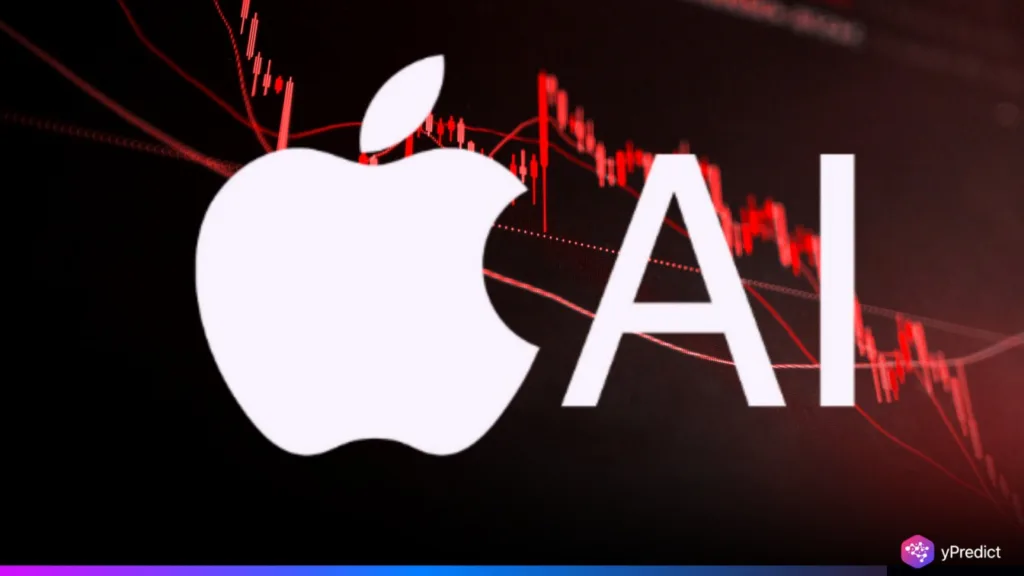
Apple is facing internal unrest over its AI strategy, particularly around Siri. According to Bloomberg’s Mark Gurman, Apple’s in-house AI team is unhappy about the company’s potential reliance on third-party models from OpenAI or Anthropic. The discontent contrasts sharply with Apple’s 2024 promise of on-device privacy-first AI. Users on X, like @docsta80, echo concerns that Apple is losing its AI edge. With competitors like Google and OpenAI accelerating in generative AI, Apple’s AI posture is under intense scrutiny. These tensions point to a larger identity crisis: whether Apple will lead in AI innovation or remain dependent on external tools.
Ruoming Pang’s Departure Signals Deeper AI Talent Crisis
The fact that one of Apple’s senior AI engineers, Ruoming Pang, has left the company has furthered the worry of where the company was headed. Pang, who made more than 46,000 citations researching, contributed to the development of Apple Intelligence and the evolution of the architecture of Siri. His decision to join Meta’s newly established AI Superintelligence division, confirmed by Gurman in an X post on July 7, marks a major loss for Apple at a critical moment. Gurman described Pang as “Apple’s most respected AI researcher,” and his exit follows growing disillusionment among Apple engineers about the company’s willingness to outsource AI.
While Pang has yet to make a public statement, industry chatter sees his move as a vote of no confidence in Apple’s long-term AI vision. X users were quick to react. Comments ranged from frustration to resignation, with some calling Siri “obsolete” and questioning why Apple lags so far behind rivals. The contrast is stark: OpenAI’s ChatGPT and Anthropic’s Claude are improving rapidly, while Apple appears to be treading water. This high-profile exit might prompt more defections, potentially weakening Apple’s internal bench strength. If Apple hopes to stay relevant in the AI race, retaining and empowering top technical talent must become an urgent priority.
Siri’s Future Caught Between Outsourcing and Innovation
The possibility of outsourcing Siri’s AI brain represents a strategic crossroads for Apple. Technology Magazine reported that discussions with Anthropic stumbled over financial terms, prompting Apple to shift its focus to OpenAI. If true, this would mean Siri’s evolution could depend on technology developed outside Cupertino, a stark reversal from Apple’s privacy-centric AI model unveiled in 2024. X posts from users like @panther_squat and @charle_marle speculate that Apple may need to acquire a firm like Perplexity to regain autonomy. Others suggest the company underestimated the AI revolution and failed to develop competitive in-house models early enough. The irony is sharp: once an AI pioneer, Apple now risks becoming a follower.
Externally, analysts are watching closely. While outsourcing could provide short-term gains in Siri’s capabilities, it may weaken Apple’s differentiation. Integrating large language models from third parties raises questions about user privacy, one of Apple’s core marketing pillars. Internally, such a shift risks deepening morale issues among teams that have spent years building privacy-first AI systems. Regardless of whether the AI strategy that Apple is pursuing keeps in the direction of partnerships or moves back to an internal innovation approach, it will need to have a keen sense of balancing speed, talent, and the brand it currently evokes.
Apple’s AI Identity Hangs in the Balance
Apple is at a defining moment in its AI journey. With Ruoming Pang’s exit, growing internal dissatisfaction, and stalled partnerships, the company’s leadership must make high-stakes decisions. Will it double down on external models and risk diluting its privacy promise, or reinvest in proprietary innovation to restore confidence? Siri’s future and Apple’s AI reputation now depend on how Cupertino resolves this identity crisis. As rivals push ahead with generative AI breakthroughs, Apple must show it can lead, not follow. In the coming months, its strategy will signal whether the world’s most valuable company still has what it takes to define the next frontier of computing.





